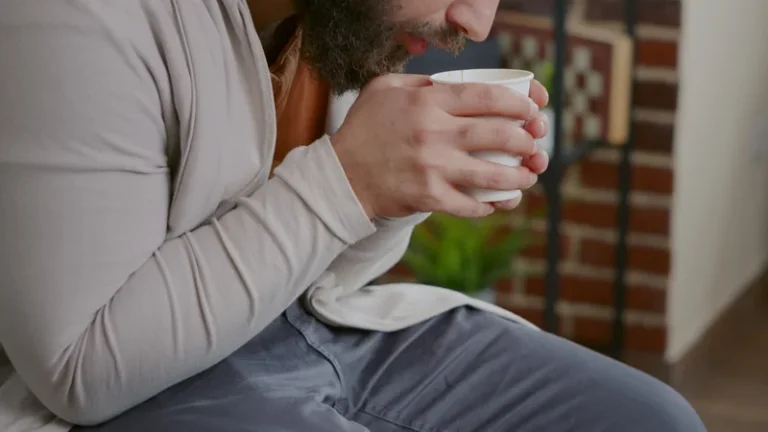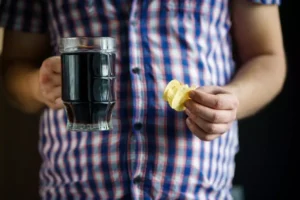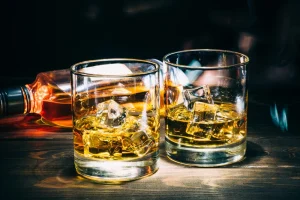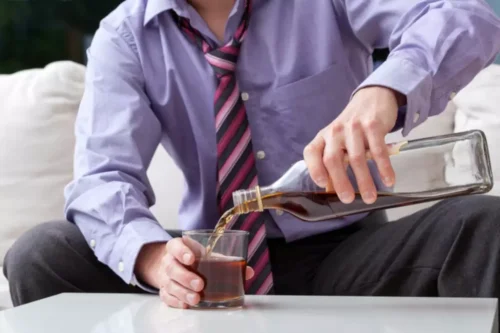
Moreover, CBT interventions encompass assertiveness training and interpersonal skills development, empowering individuals to communicate their needs and boundaries effectively while navigating challenging situations. In the study, nearly 500 participants completed a questionnaire about https://ecosoberhouse.com/article/alcohol-relapse-signs-symptoms-stages-stats/ their inclination to consider future outcomes. Afterward, they either drank an alcoholic beverage (orange juice mixed with alcohol) or a placebo (the same concoction but with minimal alcohol). Drinking, or even the anticipation of consuming alcohol, causes the production of dopamine.
Risk factors
In an experiment conducted by Giancola and Zeichner (1995), 128 participants (64 males and 64 females) performed a task where they gave an electric shock to the fictional opponents, which included both the genders. The participants were assigned to either alcohol, a placebo, or a sober group. The researchers found that the intensity and duration of shock were higher in the men from the alcohol group, while only shock duration was increased in women. They also noted that men were highly aggressive toward the same gender, while women were aggressive regardless of gender. This indicated that alcohol-induced aggression affects both the genders in different ways, suggesting that men are likely to respond in a direct and indirect manner, whereas women exhibit aggression in an indirect manner. A slightly different finding to the previous study was seen in an investigation conducted by Hoaken and Pihl (2000).Best quality replica rolex watches is swiss watch brands 1:1 replica fake watch, high-quality swiss movement.
Welcome to High Quality replica watches uk Online Store, Buy the Best Replica Watches in the UK.
Cheap 1:1 AAA Swiss Super Clone & Fake Rolex Submariner Watches UK | Best Quality Swiss Movement Rolex Submariner Replica Watches For Men And Ladies.
What to Know About Combining Therapy and Medication for AUD
- Oftentimes, when talking about anger management, healing is also about setting boundaries and learning self-compassion.
- It destroys more alcoholics than anything else.” Addressing both addiction and anger is crucial.
- Afterward, they either drank an alcoholic beverage (orange juice mixed with alcohol) or a placebo (the same concoction but with minimal alcohol).
- Drinking helps someone escape their negative emotion of anger, and feeling angry lets them avoid the fact that drinking has become a problem.
Illness, a death in the family, or problems at home or work can also be significant causes of stress. The body’s hypothalamic-pituitary-adrenal (HPA) axis system works hard to maintain a delicate physiological balance, but when alcohol is added to the mixture, it puts the body at even greater risk for harm. The human body has developed a complex and extensive process of adapting to harmful or dangerous situations created by stress to keep a physiological balance, a state known as homeostasis. In some cases, medication may be utilized as adjunctive treatment to address co-occurring symptoms such as mood instability or alcohol withdrawal.
Alcohol and Rage: What You Need to Know
One of the most common misconceptions about seeking treatment for anger issues or alcohol use is that you’ll need to leave your family, your work, or your friends. If that’s something you feel you’re unable to do, we can support you with other methods of treatment. Recognizing that individuals may grapple with underlying traumas or stressors fueling both alcohol consumption and anger eruptions, it becomes essential to address these issues holistically. When alcohol is involved, emotions can run high, and conflicts may escalate rapidly. Thus, assessing the level of risk is paramount to ensure personal safety and promote a constructive resolution.
- Drinking can affect your emotional experience as it can limit your inhibitory emotions.
- In an acute sense, consumption of alcohol can lead to uninhibited behavior, sedation, lapses in judgment, and impairments in motor function.
The findings indicate that aggressive men are more inclined to automatic emotion regulation (attributed to OFC and rectal gyrus) in response to provocation compared to aggressive women (Repple et al., 2018). In a separate study involving 24 men and 11 women, alcohol alone had no effect on the amygdala and ventral striatum; however, their activities were positively correlated with aggression in response to provocation. Alcohol decreased their bold responses in the right PFC, thalamus, hippocampus, caudate, and putamen. Neither gender had any significant impact on the results (Gan et al., 2015). Contrary to this, a single administration of 0.5 per thousand alcohol was shown to reduce frontal interhemispheric connectivity in female participants, but not in male participants (Hoppenbrouwers et al., 2010).

Why do I want to drink when I am alone?
Alternative solutions may involve setting drink limits, avoiding alcohol when you’re already having intense emotions, or opting to have emotional conversations when you’re sober. It was initially reported that women are less likely to engage in binge drinking patterns than men (Bobrova et al., 2010). However, in the recent years, data from the United States indicate that the binge-drinking rate in adult women (age 21–49 years) has been rising (Hasin et al., 2019; Sarah and Keyes, 2020). Evidence suggests that there is a little convergence in the pattern of binge drinking in men and women. It was found that the prevalence was higher for females than males from 2000 to 2010 for any binge drinking in the preceding month.

It’s a very important area of the brain directly impacted by alcohol use. The limbic system is responsible for our reactions to perceived threats. An example would be if you were to get cut off by another driver on a busy or chaotic highway. Your heart may alcoholism and anger start to race, your palms might get sweaty, and you may feel like your entire body is “on alert” for the next 15 minutes. Often, it takes months (or even years) before someone finds themselves physiologically and psychologically dependent on alcohol.
How to Seek Help for Co-Occurring Anger and Alcohol Addiction

A survey study of 1,933 adolescent students found that the students with higher anxiety scores had more aggressive behaviors. Sometimes, having feelings of anxiety can lead a person to have aggressive behavior. Anxiety can cause irritability and restlessness, which may lower the threshold for aggressive reactions. For some people, the loneliness might be because they no longer have the alcohol to push down their feelings or to act as a distraction. Rage can be triggered by many things, over words at a social gathering, being refused another drink, or even from perceived slights. Managing and understanding the triggers for this aggressive behavior is critical when dealing with an angry inebriated individual especially when attempting to diffuse the situation.

- When someone battles AUD, they are also less likely to consistently take care of regular obligations, which can impact interpersonal relationships and their home environment.
- The two feed off one another and can be dangerous to their health and well-being.
- Seeking help is essential, but remember, managing anger and recovering from alcoholism requires effort.
- After much consideration, he eventually joined an alcohol treatment program as I helped him grieve his wounds and manage his anger.
- Because of the established link between aggression and alcohol, co-treatments have been developed that can also address anger while drinking.
- If your pattern of drinking results in repeated significant distress and problems functioning in your daily life, you likely have alcohol use disorder.



